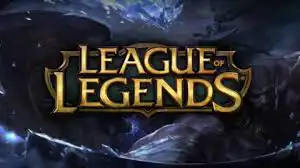There's been quite a buzz around Aurelion Sol's recent modifications in League of Legends, further stirring the pot after Riot Games' release.
The original Aurelion Sol was designed to be a star forger who excels in expanding his galaxies. This unique gameplay allowed the cosmic dragon to continually deal damage within his star's range, presenting gamers with an unorthodox style of fight.
However, the downtime between stars offered opponents an opportunity to gain the upper hand. Aurelion could not retaliate whenever his stars were deactivated. This vulnerability attracts contention, with some players differing on its effect on the overall gameplay.

His central mechanics were his passive 'Center of the Universe' and his W 'Celestial Expansion.' His passive ability meant his stars revolved around him, dealing damage to enemies they hit while his W ability increased the stars' speed and damage momentarily. Also worth mentioning are his Q ability 'Starsurge' and E ability 'Comet of Legend.'
The updates to Aurelion seemed to have altered the entire conception of dragon stars. The changes moved Aurelion from a battle mage resultantly to a burst mage, thus altering his gameplay pattern.
In the most recent version, Aurelion's stars were changed from continually revolving stars to stars with a 3-second rotation. Riot Games justified this move by saying that it was designed to improve the pacing of the game.
The developers fancied creating windows of power and vulnerability to provide a more tactical and adrenaline-boosting gameplay experience. Riot saw this change as an opportunity to introduce a new level of strategy to the game.
However, the change was not met entirely with open arms. Some players felt that the shift was a fundamental change that upset the balance of the game and made Aurelion less unique. They were of the opinion that the dragon was better off as a battle mage, an aspect that provided him a distinct gameplay.
The update also made a significant adjustment to Aurelion's E ability which concerns his traveling ability. The new E provides him with an excellent roaming potential, reducing the cooldown from the initial 80/65/50/35/20 to 70/60/50/40/30.
Riot Games finds this update as an occasion to promote more interaction between players. Their belief was that the primary purpose of these changes was to produce some exciting gameplay.
The crowd of gamers speculates that these tweaks are steps taken by Riot to render Aurelion a more universally playable character. Introducing him to a wider demographic of players might bring some positive ripple effects to the game.
Detractors to this modification, on the other hand, argue that the update takes away a layer of complexity from the uber-dragon. It removes part of the learning curve that League of Legends is known for, and all that makes Aurelion a unique part of the game.
It's clear that both sides of the dispute have valid points. However, it is important to note that any change to a game, especially one as popular and wide-reaching as League of Legends, is likely to have both positive and negative consequences.
In essence, the changes are Riot Games' attempt to balance out Aurelion's weaknesses against his strengths. The modifications, though drastic, tend to tune the dragon more towards what the company envisions for the game's future.
It remains to be seen whether these updates will be successful long-term or whether they will be adjusted further down the line. The reception from the gaming community will definitely play a significant role in these outcomes.
Therefore, as controversial as Aurelion Sol's changes may be, it is undeniable that they form an integral part of the League of Legends game dynamics. It sheds light on how Riot Games approaches game design and adaptation based on their player feedback.
While no conclusion can be drawn yet on the real impacts of these updates, gamers would undoubtedly keep an eye for how it plays out. This would mainly help them understand and adjust to the versatile aspects of the gameplay.
Thus, the recent alterations to Aurelion Sol, marked by a series of mixed reactions, are a testament to the ever-evolving nature of League of Legends. Only time can tell how these updates pan out and whether these tweaks would indeed enhance the game.
It is undeniable that the modifications made to Aurelion Sol have made an indelible mark on the landscape of League of Legends. Whether these changes will be embraced or rejected by the gamer community remains to be seen.